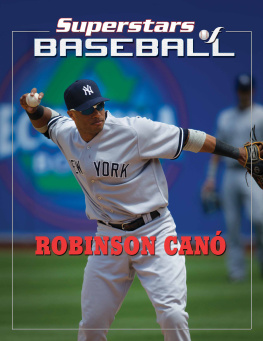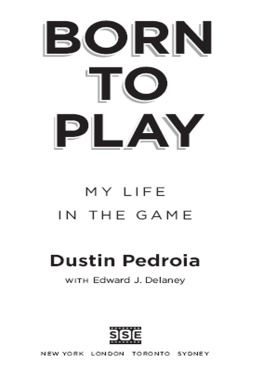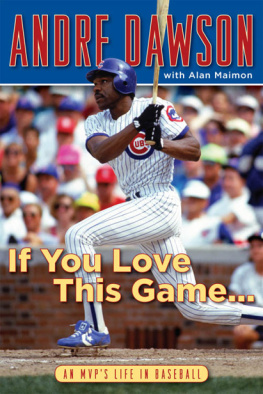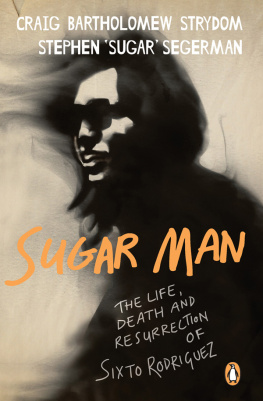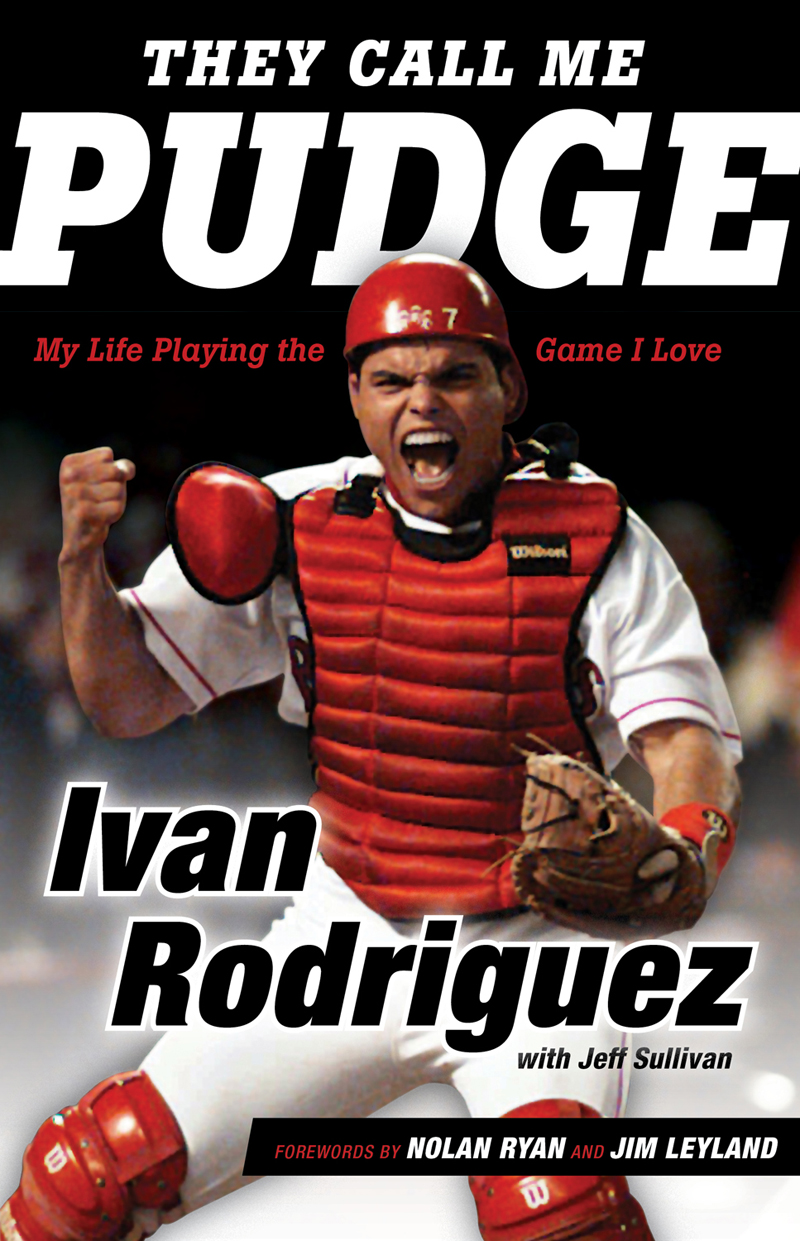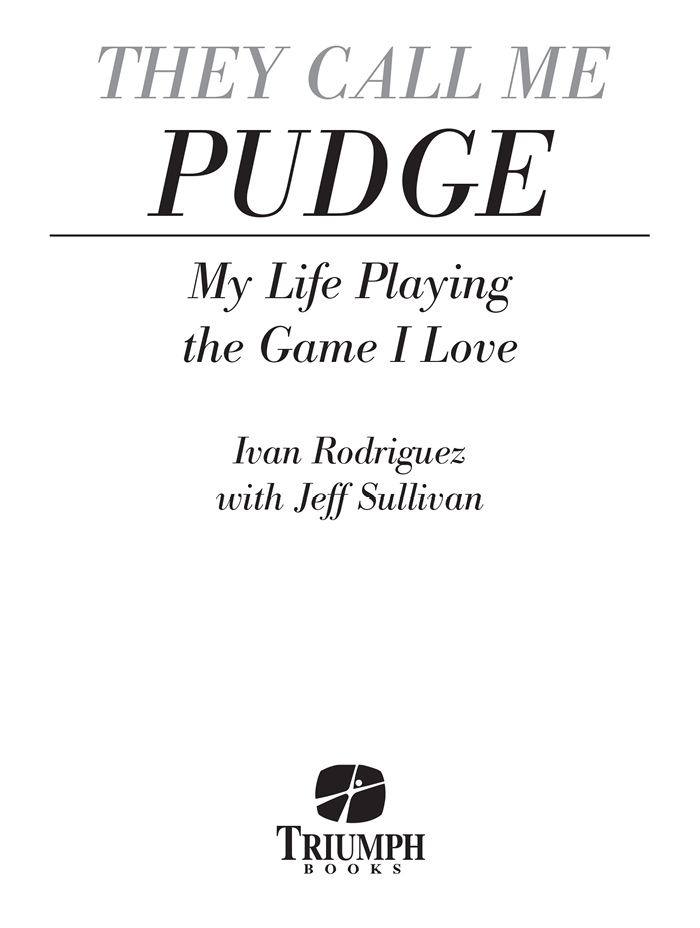
To my parents, Jose and Eva, for all their love, inspiration, and sacrifice
Contents
Foreword by Nolan Ryan
I know from firsthand experience how difficult being called up to the big leagues at 19 years old can be. And when the Texas Rangers brought Pudge up in 1991, he was actually a couple weeks younger than I was when the New York Mets promoted me in 1966. Its funny to think about really, but after I made my debut, Pudge wouldnt be born for another five yearsyet I was fortunate enough to pitch to him for three seasons.
During his first gameat Comiskey Park in Chicagohe threw out a couple of guys on the bases, and I dont think they were even close. He was throwing some heat for sure. I remember hearing he was clocked at 94 miles per hour throwing down to second base. There were times he was throwing the ball back to the pitcher with more velocity than they were throwing it to him. I think we would both say our ability to throw a baseball was a God-given gift.
The next day, which would have been June 21, was the first time Pudge caught me. We made some history, too. It was one of the few times a teenager caught a pitcher more than 40 years old. In other words, a kid catching an old timer.
Back then Pudge didnt speak much, if any, English, and this wont surprise anyone, but I dont speak any Spanish. So when we met in the coaches room of the clubhouse for our pregame scouting report, well, it wasnt a long discussion. I told him, You put the fingers down, and Ill throw it. And were going to have ourselves a good night.
Pudge just kept calling pitches until I shook my head yes. Then hed go to location, and I would shake yes when we were at the right place. And we got along quite well. I allowed just one hit that first start. After the game I walked into manager Bobby Valentines office and I said, This kid is alright. Id be just fine throwing to him from now on.
A few starts later in Arlington on July 7, I was cruising along through seven innings of what would have been my eighth no-hitter. We were playing the California Angels, and Dave Winfield singled up the middle on an 02 pitch to lead off the eighth. After the game, which we won 70, reporters asked Pudge about the pitch to Winfield, and he said I shook him off. So he did learn to speak English pretty quickly.
The following spring trainingand this is one of Pudges favorite storieshe says he hit a home run off me to center field. During his next time up, the ball somehow got away from me, and I hit him in the leg. I dont remember the home run, but I do remember hitting him.
Around that time I remember thinking that Pudge was going to be one of the great ones. One would be hard-pressed to argue that he isnt the best all-around catcher to ever play the game. He became a much better hitter than I think anyone envisioned early on, and his 13 Gold Glove awards speak volumes. Only the great Brooks Robinson has won more among position players.
When Robin Ventura charged the mound in 1993, which was during my last year pitching, Pudge was right there trying to hold him off. What folks might not knowor rememberis that he had undergone facial surgery for a fractured cheekbone 40 hours earlier. Pudge was wearing a big bandage, but there he was, trying to protect his pitcher. It was ridiculous he was even catching that night.
Everyone likes to talk about my no-hitters and strikeouts, and Im very proud of those accomplishments. You know what, though? For almost any professional athlete, the No. 1 goal is being able to take the field, so that you can be there for your teammates. So in that regard, Pudge and I share a great feat. In the modern era, no pitcher has started more games than my 773. And no one has caught more games than Pudges 2,427. I know we both take a lot of pride in that. Many highly touted rookies come into the league and have immediate successonly to disappear a few years later. It takes a certain kind of determination and focus to produce every day season after season. And you need to work harder as you grow older; trust me on that.
Now, we were both fortunate to avoid any major injuries, but at the same time, playing 20-plus years doesnt happen by accidentespecially at such a physically demanding position as catcher. A lot of younger guys arent really into working out, and they dont have to be at that age. Not Pudge, though. He was putting himself through workouts almost every day from his rookie season. I was always really impressed by that. He wanted to be the best he could and not just rely on his natural talent.
It was a pleasure to have called Pudge a teammate. He represented whats good about baseball. He enjoyed playing the game. He truly loved every moment he was out there. From when he was that 19-year-old rookie in Chicago to his final game two decades later, he went out and played hard every day. He was that rare player who really left it all on the field. I know his fans appreciated that and I know his teammates and coaches did as well.
I am honored that we are not only linked as batterymates, but also as members of the Baseball Hall of Fame. More importantly, though, Im honored to call him my friendthough I still dont recall him hitting that home run off me.
Nolan Ryan
Texas Rangers pitcher 19891993
Foreword by Jim Leyland
Over his first 15 years in the big leagues, I didnt see much of Pudge Rodriguez. Our paths only crossed at All-Star Games and an interleague series during his MVP season in 1999. Obviously, though, I was well aware he was a superstar. I think we all knew that. Pudge was one of the faces of baseball for a long timefirst with the Texas Rangers and then winning a World Series with the Florida Marlins. He was one of those guys your eyes gravitated toward when watching a game because of his intensity, his brilliant talent, and his childlike love of the game.
When Pudge signed with Detroit in 2004, that was the first big move in the team turning around its fortunes. This was a team coming off 119 losses the season before, and here was one of the games elite players saying, Yeah, Im committed to this franchise, and were going to start winning. For general manager Dave Dombrowski, that signing was huge in terms of changing the atmosphere. Thats where it all started. Other players were added later like Magglio Ordonez and Kenny Rogers, and some younger guys came up like Justin Verlander and Curtis Granderson, but all of that began with signing Pudge.
I came on board as manager in 2006, and we had a heck of a team there. We were ready to win and win we did. We went 9567 and won the American League pennant before losing in five games to the St. Louis Cardinals in the World Series.
One of the first conversations I had at spring training that season was with Pudge. I let him know that we needed him to be a leader, that I wanted him to be vocal. You have to be careful with that as a manager, too. You dont want to put too much pressure on a guy in that situation to the point that the responsibility takes away from his focus on playing. Pudge handled it perfectly. It also helped because when you have a player of that magnitudehe was already one of the greatest catchers to ever play the game at that pointhe commanded instant respect. This was the face of our team; this was a player with the highest status an active guy can have. That went a long wayboth on the field and in the clubhouse.
Pudge was more or less what I expected as a ballplayer. He brought such a passion for the game, and his ability was off the charts. Even at 34 years old, his arm was just at another level from every other catcher. He led the league that season, throwing out 51 percent of base stealers. The league average was 30 percent.


